Any individual who thinks they or a family member may have a sleeping disorder should discuss it with a medical professional immediately. Determining the nature and severity of an OSA condition requires an overnight sleep study, also known as a polysomnogram (PSG).
The PSG test measures the frequency and duration of pauses in breathing, which is expressed as an apnea hypopnea index (AHI). An AHI score of 20 would indicate that the sleeper experiences an average of 20 apnea interruptions per hour during sleep. An AHI score of less than 15 is considered "mild," 15 to 30 is considered "moderate" and an AHO of 30 or above is classified as "severe."
These studies are usually conducted at hospital or sleep lab, but home testing options have also been developed in recent years. Most sleep medicine professionals still consider a sleep lab study to be the "gold standard" for care, because the results can not only identify sleep apnea events, but also report blood oxygen levels, heart rates and rhythms, restless leg syndrome, parasomnia (restless sleep) and can detect for rarer central or mixed-apnea conditions.
Sleep studies can be conducted over one or two nights. If apnea is detected during an all-night PSG test, a second study will be scheduled to perform what is known as a titration test. This involves wearing a CPAP (continuous positive airway pressure) mask, which is attached to monitoring equipment that allows the technicians to adjust the mask's air pressure until they find the appropriate level needed to reduce or eliminate apnea events. When done in one night, a study will begin with the PSG. If apneas is detected, the second half of the night will be devoted to the titration test.
A home sleep involves the use of a portable monitoring system that is made available to the patient, who can then conduct the overnight evaluation in their own bed. The testing devices used are effective for detecting OSA, including blood oxygen saturation, heart rate, snoring and breathing effort, but will not report other brain waves, sleep time and other related sleep disorders.
If you are experiencing symptoms of OSA, Dr. Bosma can make arrangements for referrals to a sleep medicine physician who may decide a sleep study is needed. Due to the known health risks of OSA, studies and therapies are covered by many private insurance providers and may qualify for Medicare benefits.
Sometimes, lifestyle changes such as weight loss, changes in sleep position and the cessation of smoking may be enough to reduce or relieve mild cases of sleep apnea. More often, however, additional treatment may be required. In sever cases, surgery may be suggested, but in the majority of cases, the condition can be treated without invasive procedures.
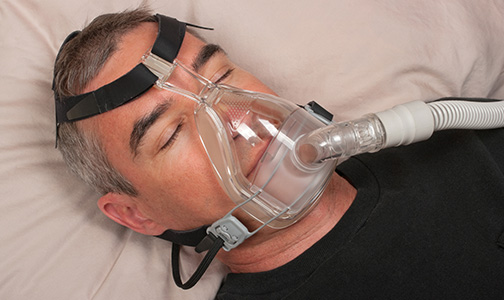
One of the most common treatments suggested for obstructive sleep apnea is a type of ventilation device known as a constant positive airway pressure machine or CPAP. The CPAP system uses a bedside air pump to deliver a supply of pressurized air to a face mask worn by the user. This higher pressure air helps keep the throat open to allow normal breathing. When a CPAP system is calibrated properly, and mated to a properly-fitted mask, it can provide effective relief from sleep apnea.
The primary drawback with CPAP systems isn't effectiveness, but rather compliance. Many users find the mask and air supply tube to be restrictive or uncomfortable, and either decline treatment or discontinue treatment after an initial trial period.
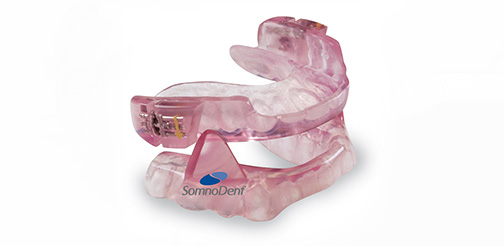
The most viable alternatives to CPAP therapy come from the field of dental sleep medicine in the form of oral appliances. These devices are worn during sleep, and depending on the causes of OSA, may be used to prevent the tongue from blocking the airway, or to advance the lower jaw to help keep the throat airway open. The most types of common oral appliances resemble sports mouth guards or retainers, but are significantly more sophisticated, and are custom-fitted by a sleep medicine dentist such as Dr. Sokolina.
• • •
|
|
| ``` PHYSICIAN REFERRAL FORM |
| SLEEP APNEA SELF TEST |
| SLEEP JOURNAL |
|
MARIA SOKOLINA D.D.S. 1066 Clifton Ave. Clifton, NJ 07013-3616 315 W57th Str, Ste 209, NYC, NY 10019 (973) 777-2731 (212) 960-8919 |
|
OFFICE HOURS: Mon: 8:00am - 5:00pm | Tue: 8:00am - 7:00pm Wed: 8:00am - 4:00pm | Thu: 8:00am -7:00pm Fri: 8:00am - 3:00pm | Sat: 8:00am - 2:00pm |
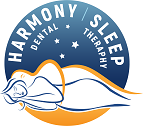

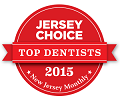

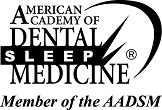
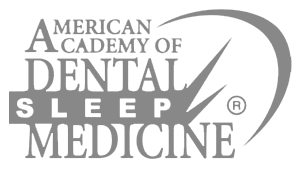
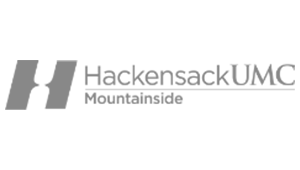
CONNECT WITH US

